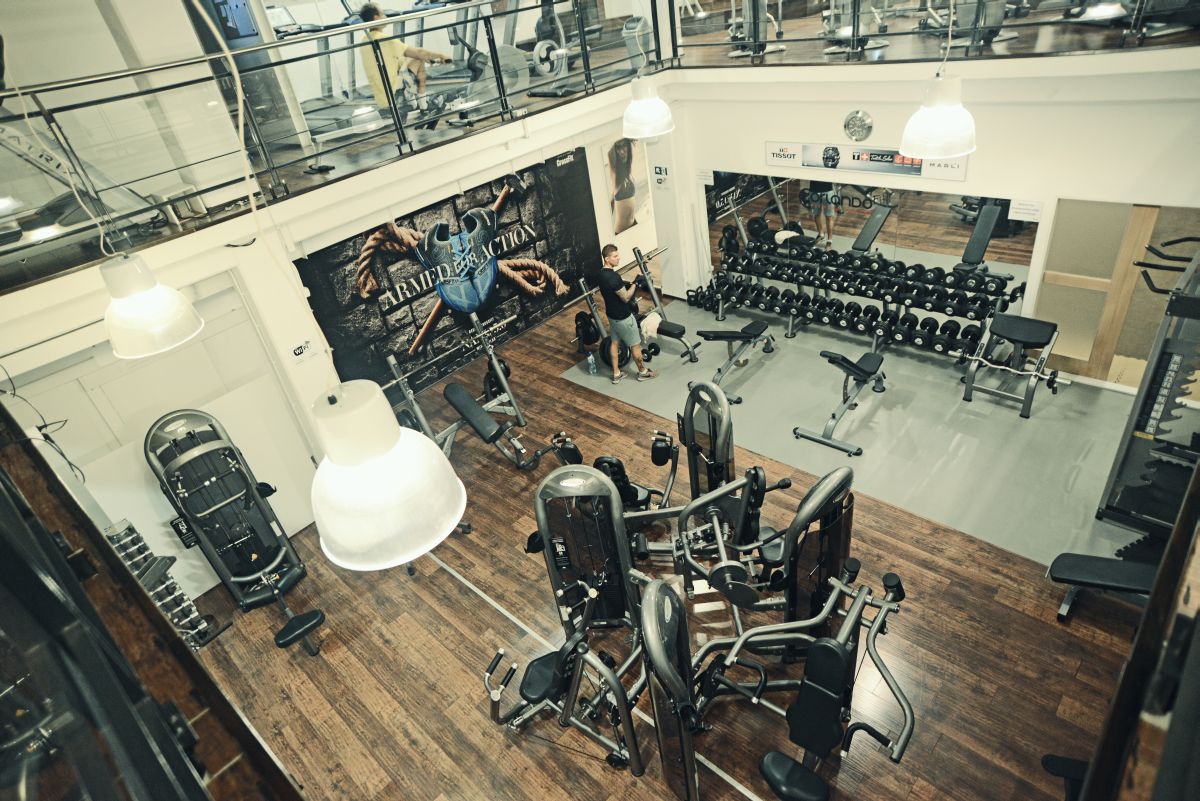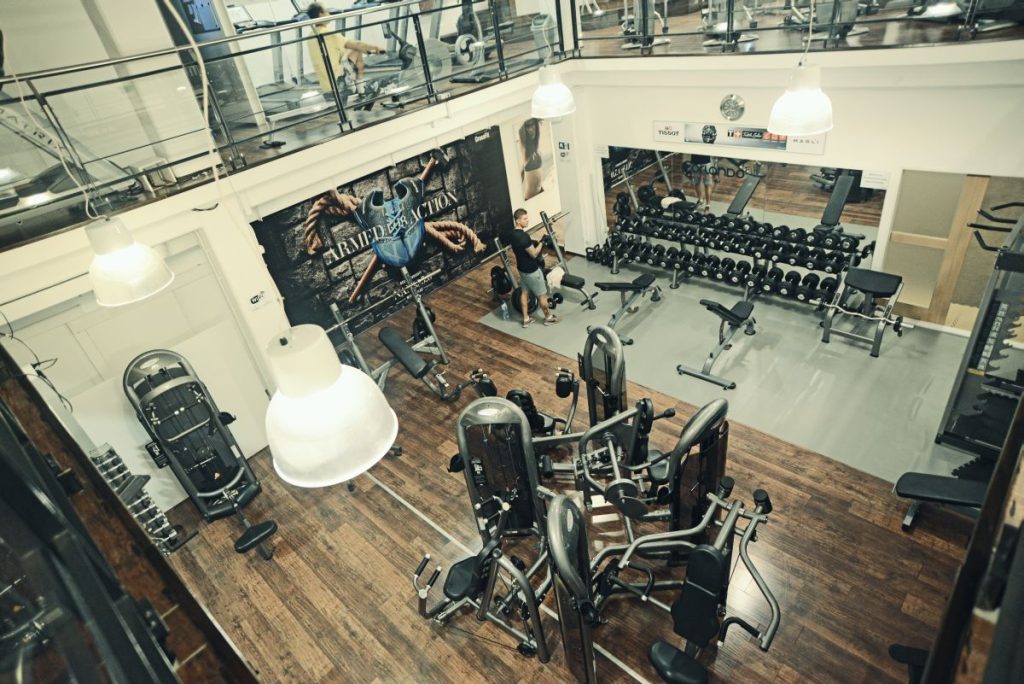April 4, 2020 — Runner, entrepreneur and tourism innovator Berislav Sokač saw the early warning signs when governments called off punishing 24-mile races.
“Oh, I knew when things were going to be bad… when the Tokyo Marathon was canceled,” he said.
The founder and head of Run Croatia, a platform focused on sports tourism, is used to the pain-gain logic which binds suffering and improvement. He is, after all, one of the country’s most-accomplished runners.
But his Zagreb-based business hasn’t encountered a challenge like COVID-19. The ban on public gatherings and large groups put the kibosh on all scheduled events and runs. More than a cough and fever, the virus cut the legs off the nation’s largest running platform.
It puts Sokač and many other members of the Glas Poduzetnika (Voice of Entrepreneurs) in the unenviable position of trying to keep their companies afloat with zero revenue. The organization of small business owners, artisans and self-employed emerged in March to advocate economic measures meant to ease the pandemic’s effect on entrepreneurs.
Business owners in a series of interviews with Total Croatia News expressed a mix of uncertainty, grit and hope in the face of fluctuating conditions. Despite a daily drumbeat of new infections and deaths.
For some, vital agreements fell through, reverting them to a one-man-show operation. Others shut down operations, kept workers on the payroll and are negotiating with landlords and creditors.
They, like Sokač and many others, expect pain with no promise of gain.
They welcome early interventions by the government and hope for further action. Quick thinking and a bit of luck have them predicting survival and even long-term renewal — whenever this grim period ends.
Inadvertently prepping for government help
Orlando Lopac ordered equipment for his fitness company, but it ran late at the end of February.
The founder and owner of Zagreb’s ubiquitous Orlando Fitness Group knew delayed shipments from US-based companies often betray a bigger problem in the production chain. A few phone calls to suppliers in Taiwan and talks with colleagues in Italy confirmed the worst.
“That’s when I understood the seriousness of the whole situation,” the 48-year-old said.

The equipment at Orlando Fitness now sits untouched.
The ensuing weeks included whirlwind preparations, all-hands meetings and planning: provisions made in case of forced closures; financial plans drawn if clients couldn’t go to one of OrlandoFit’s three Zagreb locations.
Communications strategies — bulletins, social media posts, emails — drafted in late-night writing sessions, laying out in plain language how memberships would be prorated to a later date.
“We always tried to be three days ahead of the virus,” Lopac said. “People have put a lot of trust in us.”
Then, on March 19, the government ground public life to a halt, closing all businesses that didn’t sell food or medication.
Lopac’s fitness centers would be dormant indefinitely.
The prepared social media posts and emails were met with understanding by customers.
Lopac and his crisis team laid out a financial strategy to keep the company’s employees on the books. It called for painful cuts in wages. Then, an all-hands meeting to break the news.
“We told them what’s coming is very hard,” Lopac said. “We told them our cash flow would dry up.”
Byzantine bureaucratic labor rules meant just one worker’s dissent would topple the plan, setting off a daisy chain of ugliness which would kill the company.
His 30 full-time employees would need to annex their contracts and become minimum wage workers. Then, stay at home and hope the pandemic wouldn’t last longer than the two months-worth of salaries the company could cover.
Lopac spent more than an hour presenting the plan to his workers, explaining the maths and answering their questions.
“Because we made the presentation face-to-face, and spoke directly and took the time to answer questions, they all accepted,” Lopac said. “If I sent it all in a long email, I wouldn’t have a company right now.”
Then, a stroke of luck.
The Croatian government on April 2 unveiled a second set of economic measures designed to prevent massive private sector layoffs.
Prime Minister Andrej Plenković said all minimum wage employees’ salaries would be covered, while raising the minimum to 4,000 HRK. The plan also added three months of tax breaks for qualifying businesses.
Lopac’s two-month lifeline and pay cut became a great idea.
Business owners greeted the government’s measures with open arms. Labor Minister Josip Aladrović said within days 69 employers signed up, keeping over 410,000 employees on their books for March.
Most applicants were from the catering and service industries, Aladrović added, reflecting the 53 percent drop in overnight stays last month. The nationwide shutdown of hospitality businesses also forced a 90 percent drop in turnover in the industry at the end of March. Croatia was emptying.
The measures offered some leeway for the marathon runner Sokač and fitness guru Lopac. Both will use them to their full advantage.
“It wasn’t easy giving someone pay while they sit at home and do nothing,” Lopac said.
By reducing employees’s compensation to minimum wage, they avoided layoffs. With the Croatian government covering wages, they can shift that loss off their books.
“Now, we aren’t saddled with any large expenses and production costs,” Sokač said.
Equally important for both, they feel the small business community became the fulcrum of public policy at the national level for the first time.
“The government was ready to listen,” Sokač said. “The entrepreneurial establishment was heard. That’s a lot of small gears holding up the economy.”
Lopac expressed a more befuddled view.
“What angers me the most… were we really supposed to come to a pandemic to get to a normal level of communication between the government and entrepreneurs?” he asked. “Did it have to come to this?”
Guessing government’s next pool of measures has become a favorite parlor game for economic watchers and business owners.
Some belt-tightening already began this week.
Plenković put a moratorium on new public sector hires within his government. He also froze the second search to buy fighter jets.
Even the seemingly recession-proof local Croatian public sector experienced cutbacks. City administration employees in the City of Pag, for example, will see 20 percent pay cuts. Ditto workers at city-owned companies.
What’s left to cut? Many eye the mandatory fees charged to business owners every month — forests, water, radio and television frequencies, among others. Early rumors suggested the government would scuttle the levies. They remain for now.
How bad can it get?
Dražen Tomić greeted 2020 with a slate of 17 conventions ahead of him. The media guru, journalist and editor owns and operates a collage of sites, including ICTBusiness, GamePerspectives, a production company and two YouTube channels.
Events around Europe and rest of the world develop the contacts and stories his bundle of media companies churns out at a substantial clip. The gatherings are all on hold or canceled outright — as Tomić expected.
“Those who understood anything about virology knew that the virus would leave China,” he said.
Worse than the conventions, the photography and video gigs garnering additional revenue have all fallen through, leaving an immeasurable hole in his company’s finances.
“If someone asks me what’s my revenue now, I have no idea,” he said. “Some jobs were already agreed upon. Some were in the works. Some are renewed every year. Some were a head nod and promise to get something done. They’re all on hold now.”
For Sokač, Run Croatia’s numbers are grim. He forecasts a 70 percent drop in revenues this quarter, and a 40 percent drop if the crisis lasts into autumn.
A blow to the tourism industry would be devastating. He pointed to a race organized in Novalja, where 70 percent of registered runners would come from outside the country. Closed borders would leave him reliant on the 30 percent of Croatian participants — if they show up.
A continued moratorium on public gatherings would cancel the race — a 100 percent loss.
“Worst case scenario, we’re looking at an 80-90 percent drop,” Sokač said.
Holding onto employees
Tomić’s company relies heavily on him, one full-time employee and eight others working in a freelance capacity.
That circle is tightening.
“I have a small firm,” he said. Halting isn’t an option. “In this company, a lot of things rely on me. I either work or I don’t work.”
He doesn’t expect layoffs.
Sokač first reached out to the social media influencers and people he outsources to, telling them the races earning them money may be canceled. Then came the “crisis meeting” with employees, a common response with nearly all the business owners interviewed.
He told his workers they’d weather the pandemic using whatever measures were available, keeping Run Croatia alive in some iteration.
“I’m not prone to panic,” Sokač said, adding his employees share his demeanor. “I’m lucky that the people who work for us also live for what we do.”
He knew the run-friendly business would likely fall off significantly. Luckily, he created an alternative stream of revenue.
Smart Planning and a Dash of Luck
On Jan. 15, Sokač added another wing to the Run Croatia ecosystem he’s built since founding the company in 2015.
“It’s important to create a platform. The stronger the platform, the higher your immunity to crisis,” he said.
That addition was a web shop — exactly the sort of operation exempt from the restrictions put in place to fight the pandemic. Traffic to the site jumped in March, as soon as people were told to stay at home.
Suddenly, Run Croatia had a lifeline.
“It was totally by accident,” Sokač admitted.
Lopac said now that wages are off his mind for the short term, he’s trying to renegotiate deals with his financiers and landlords, using the same transparent approach he took with his employees. Early signs show promise.
“The things I am not doing: complaining, crying and waiting with hands outstretched looking for help,” he said.
But just in case, Lopac spent the better part of last week developing a promising alternative revenue model — one he’s keeping to himself.
“At this moment, OrlandoFit will be alive as long as I can keep working at the same tempo,” he said. “This will survive the same way it has over the last 30 years.”
Sometimes, the nature of the business works in one’s favor, according to the journalist Tomić.
“It’ll be hard to survive the next few months,” he said. “Thankfully, this journalism bit has strict controls on expenditures.”
The low overhead and high amount of news means Tomić’s “stay at home” lifestyle remains uptempo. He admitted to sometimes hammering away close to 17 hours a day.
“At this moment, the volume of available content hasn’t been greater,” Tomić said joylessly.
Looking Ahead with Hope
Tomić knows that this pandemic, like most calamities, will pass. The real challenge, he said, will be the recovery. A wrong turn or lackadaisical response could lead to “an economic death spiral.”
“When we come back, it can’t be at 90 percent. Or 100 percent,” he said. “It has to be at 150 percent.”
Lopac’s forecast for his company is somber: between two and three years to be back at full force. He admits fitness centers grow quiet during summer months. Many members disappear until autumn.
The bigger problem is the economic aftermath. A downturn leaves people clutching their wallets. Luxuries like personal trainers and fitness center memberships are among the first expenses discarded.
There’s also the nagging caricature of gyms as dens of bacteria and sweat.
“I know our fitness centers have the highest level of hygiene you can image,” Lopac said, spelling out the protocols and culture of cleanliness at his gyms. “I can tell you it’s cleaner than any grocery store. But the perception and thinking of the public might be different.”
Sokač, the marathon runner, admits to being an optimist. His kids, he said, are a testament to the positives this coronavirus has wrought.
“I see on this digital schooling a lot of attention is being given to physical fitness,” he said, pointing to new online courses and curriculum. “These are all changes we can keep.”
The pandemic? It’s just another challenge.
“You have people who are negative and depressive and they can’t function,” the 45-year-old said. “No matter how hard things get, you have to find something that works.”









